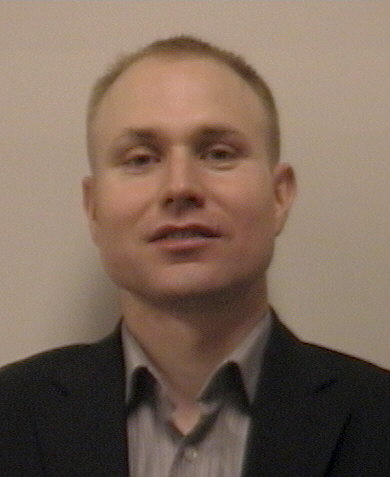Software Engineering Institute | Carnegie Mellon University
Site menu:
Real-Time Systems and Cyber Physical Systems
Real-time systems are computer systems where the correctness depends not only
on computing the right result but also on computing the result at the right time.
This creates new dependencies. For example, consider two processes that do not share data and do not exchange
messages and where there are no real-time requirements. Then, it is possible to prove the functional correctness of one
process without considering the other. Suppose now that they have timing requirements and the two processes
are scheduled on a single processor. From a timing verification perspective, the two processes are now dependent.
For this reason, it is necessary to develop algorithms for scheduling processes so that the timing requirements
are considered when making scheduling decisions. This is called real-time scheduling.
For a given scheduler and for a given software system, it is also necessary to prove that for all possible
interleavings that can be generated at run-time, all timing requirements are met. This is called schedulability analysis.
Cyber-Physical Systems are computer systems where the computer system and its physical world are linked,
either intentionally (the system was designed with this linking to attain better performance) or
unintentionally (the designer thought that there was no linking but there actually was and this causes new types of faults).
Research Interest
About real-time systems: I have worked on real-time scheduling for multiprocessors, especially multicore processors. I am interested
in schedulability analyses that are more expressive than the ones that are available in the research literature right now.
About cyber-physical systems: I have developed WiDom --- a medium access protocol for wireless channels --- which
makes it possible to apply the fixed-priority scheduling theory to wireless channels.
Community report about certification
Upcoming Events where I serve as TPC chair
Upcoming Conferences and Events where I serve on TPC
News
R. Martins, M. McCall, D. de Niz, A. Vasudevan, B. Andersson, M. Klein, J. Lehoczky, and H. Kim,
``Formal Verification of a Mixed-Trust Synchronization Protocol,''
Real-Time Network and Systems, 2021.
D. de Niz, B. Andersson, H. Kim, M. Klein and J. Lehoczky,
``Resilient Mixed-Trust Scheduling,''
RTSS 2021.
H. Kim, D. de Niz, B. Andersson, M. Klein and J. Lehoczky,
``Addressing Multi-Core Timing Interference using Co-Runner Locking,''
RTSS 2021.
V. Petrucci, B. Andersson, E. Massa, G. Lima,
``Heterogeneous Quasi-Partitioned Scheduling,''
RTSS 2021.
B. Andersson, D. de Niz, and M. Klein,
``Satisfying Real-Time Requirements of Multicore Software on ARINC 653: The Issue of Undocumented Hardware,''
DASC 2022.
B. Andersson and D. de Niz,
``Which Future Trends Motivate Real-Time Research?,''
ECRTS-RTP 2022.
B. Andersson, D. de Niz, and M. Klein,
``A Tool for Satisfying Real-Time Requirements of Software Executing on ARINC 653 with Undocumented Multicore,''
DASC 2023.
Bjorn Andersson, Dionisio de Niz, William Vance, John Ross, Mark Wotell, and Tuan Bui,
``Methodology of Combining Empirical Stress Testing and Formal-Methods Based Schedulability Analysis for Real-Time Multicore Software,''
DASC 2023.
Gave presentation at the panel ``Promises and Challenges of AI-enabled Software Development Tools for Safety-Critical Applications'' at the 27th Ada-Europe International Conference on Reliable Software Technologies (AEiC 2023).
FAA has published (as DOT/FAA/TC-23/06) our report ``Assessing the Use of Machine Learning to Find the Worst-Case Execution Time of Avionics Software''.
Dionisio de Niz, Bjorn Andersson, Mark Klein, John Lehoczky, Amit Vasudevan, Hyoseung Kim, and Gabriel Moreno, ``Mixed-Trust Computing: Safe and Secure Real-Time Systems,'' ACM Transactions on Cyber-Physical Systems, to appear (probably in 2024).
Bjorn Andersson, Dionisio de Niz, William Vance, John Ross, Mark Wotell, Willie Fitzpatrick, and Tuan Bui,
``What is Determinism? Definitions and Implications for Airworthiness and Critical Software,''
DASC 2024. Best-of-Track (BoT) award.
Bjorn Andersson, Dionisio de Niz,
``Accelerating Insertion of Capability using GenAI based Control Synthesis from Image,''
5th Annual AI4SE & SE4AI Research and Application Workshop, 2024.
Bjorn Andersson, Dionisio de Niz,
``Accelerating Insertion of Capability using GenAI based Identification of Military Vehicles,''
NDIA Systems and Mission Engineering Conference, 2024.
Bjorn Andersson,
``Leveraging AI for Assurance of Critical Software Systems,''
presented at Trustworthiness of Foundation Models and What They Generate (TFM), in conjunction with IEEE Space Mission Challenges for Information Technology - IEEE Space Computing Conference, July 15, 2024.
Bjorn Andersson, ``The importance of starting in a good place,'' Workshop on Formal Arguments for CPS Certification FACCT 2025, held in conjunction with Cyber-Physical Systems and Internet-of-Things Week
Irvine, USA, May 6, 2025.
Bjorn Andersson, Dionisio de Niz, William Vance, John Ross, Roshini Ashok, Chase Blakey, and Tuan Bui,
``Determinism in Avionics: Lack of Definition, Survey of its Use, and Taxonomy to Clarify its Meaning,''
IEEE Aerospace Conference 2026, Big Sky Montana, March 7-14, 2026.
